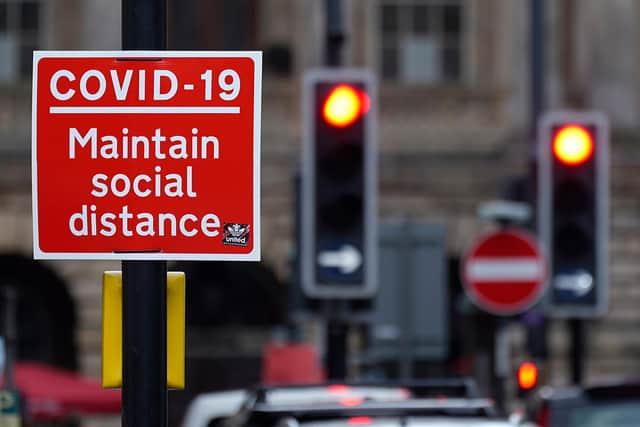Calls for stricter Covid measures 'before Christmas' as second wave hits 'critical' stage
and live on Freeview channel 276
Researchers say infections are doubling approximately every nine days in England – and that there are early signs areas with previously low rates of infection are now following trends observed in the worst-affected regions.
As findings of the study, carried out by a team of scientists, clinicians and researchers at Imperial College London, Imperial College Healthcare NHS Trust and Ipsos Mori, are released today (Thursday, October 29) experts are calling for a change ‘before Christmas’ to counteract the Covid-19 growth being seen across the country.
Advertisement
Hide AdAdvertisement
Hide AdProfessor Paul Elliott, director of the programme at Imperial from the School of Public Health, said the virus is ‘continuing to go up’ nationwide – but that the North East has seen ‘a turn down’ in the rate of virus growth.


“I think we were disappointed to see that actually we were still in this rapid growth phase – except, as we say, in the North East where there does seem to have been a turn down, but it’s still growing,” he said.
Prof Elliott continued: “It’s more critical, because it’s gone up more and it’s continuing to go up.
“And also we’re seeing this increase in the rate of rise, rather than decrease in the rate of rise which we did spot before.
Advertisement
Hide AdAdvertisement
Hide Ad“So there was a period when the rate of rise was decreasing, and we were hopeful that the policies that have been implemented were turning the rates down and ultimately turning the prevalence down.
“But what we see this time is an increase in the rate of rise and not only a high prevalence in the north, increasing rapidly increasing prevalence in the south.”
The interim data from round six of the study uses data and swab results from 86,000 people between October 16-25, and estimates there are around 96,000 new infections per day.
Advertisement
Hide AdAdvertisement
Hide AdInfections were doubling every nine days with a national reproduction number (R) estimated at 1.56, compared to 1.16 in the previous round.
The experts warn: “The co-occurrence of high prevalence and rapid growth means that the second wave of the epidemic in England has now reached a critical stage.
“Whether via regional or national measures, it is now time-critical to control the virus and turn R below one if further hospital admissions and deaths from Covid-19 are to be avoided.”
They add that the pandemic is growing exponentially, but say the effect of some of the most recent measures may not have filtered through to the numbers.
Advertisement
Hide AdAdvertisement
Hide AdSteven Riley, professor of infectious disease dynamics, Imperial College London, added: “There has to be a change. The rate of growth that we’re seeing and in these data is really quite rapid, so one way or another there has to be a change before Christmas.
“We’ve fairly reliably measured a slight decrease in R in our interim round five, now we have measured a slight increase in R, and the slight increase in R means that current measures are not sufficient.”
